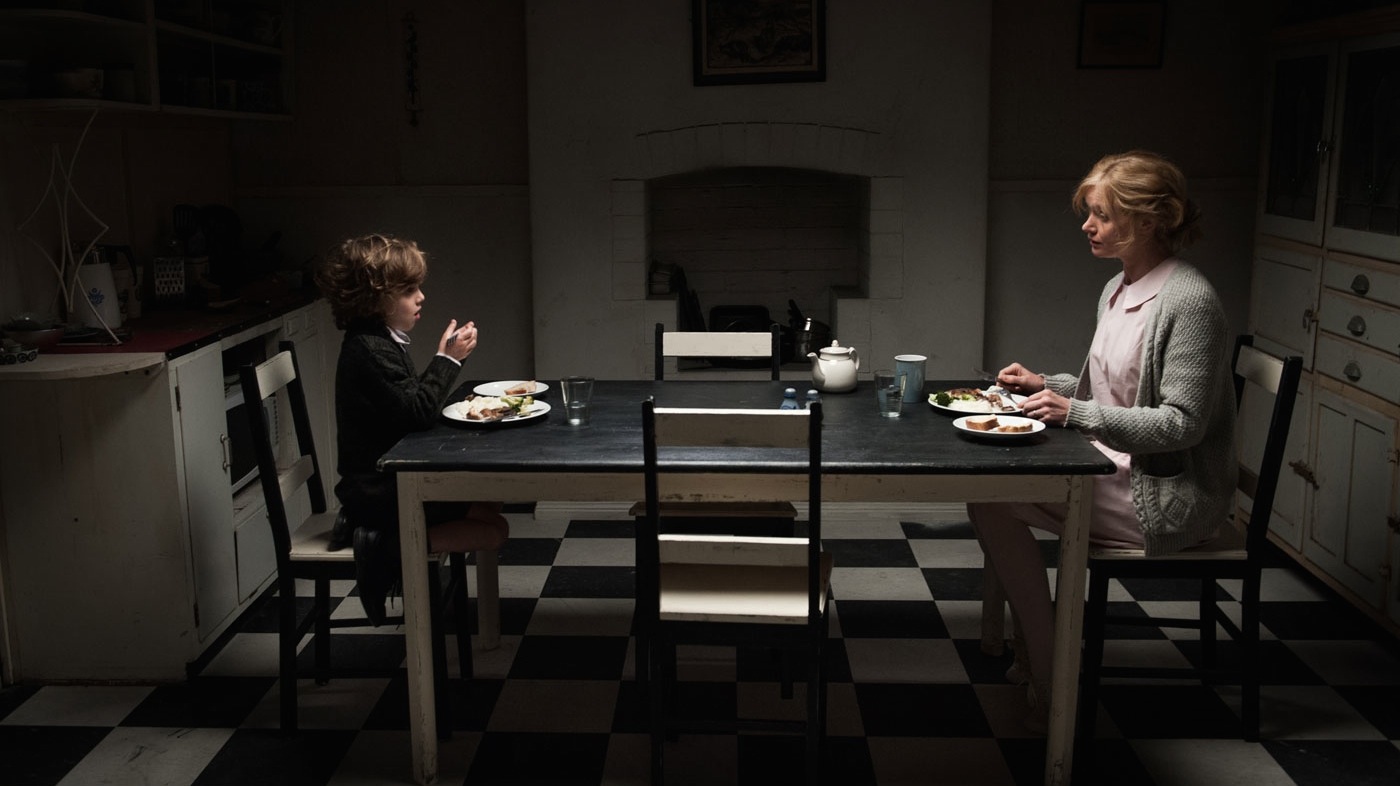The Babadook may be the scariest film of 2014—but it’s something so much more terrifying than that. Because at the delicate core of this story, in which a single mother battles the supernatural (disguised as both overwhelming grief and a storybook boogieman come to life), is an almost unendurable truth: sometimes, unconditional love is a burden. And only that.
After seven years, Amelia (Essie Davis) is still unable to deal with the loss of her husband who, when driving her and their then-in-utero son to the hospital to give birth, was brutally mangled in a car crash. The details of the disaster are left vague throughout the film—both the why and the how are barely intimated, except for one oneiric moment that provides the film’s only glimpse of gruesomeness—and replaced with an overwhelming sense of dread and depression. Amelia’s now-prepubescent son Sam (Noah Wiseman)—at the perfect age to accept the blending of external and existential realities—is a handful, preternaturally unable to get along with any other children his age and prone to metaphysical fits, so much so that Amelia is plagued by the secret wish that it was her son whom Death took instead of her partner.
Life doesn’t work that way, of course, but The Babadook knows that the human heart does work that way—this world’s indifference is just sometimes too powerful to bear. So, as Sam’s fits get worse and Amelia loses more and more sleep, from Sam’s bookcase comes a weird (but beautiful) pop-up book called Mister Babadook, and in one symbol writer/director Jennifer Kent introduces the manifestation of Amelia’s greatest fear: that her grief, and with it the morbid resentment of her son, will never go away.
In essence, the film is a handsome, suffocating paint-by-numbers creeper, touching on each horror movie trope with a measured hand, but what makes it a transcendent experience is its simplicity. There are no easy answers to Amelia’s predicament, only the possibility of finding ways to cope and the strength to keep them up, even throughout total hopelessness. Love is hard, the film seems to say—and it will never get easier. This is just what it means to grow up, get older, and live with the knowledge that everything you care about will die…sooner or later. Which is the scariest idea of all.—Dom Sinacola








